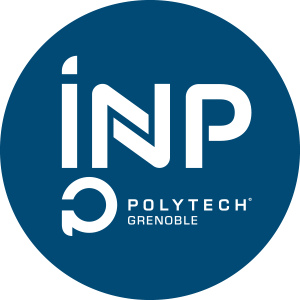Number of hours
- Lectures 7.0
- Projects -
- Tutorials -
- Internship -
- Laboratory works -
- Written tests -
ECTS
ECTS 0.0
Goal(s)
In this course we will cover the notions of Management and Total Productive Maintenance (TPM) which is a management model that deeply affects the organization of industrial production.
For the Management part:
- Sensitize engineering students to the human aspects of the functioning of organizations
- Consider the management and organization of the company from a systemic perspective. Management will be addressed through the following subsystems: planning, organization, management and control.
- Introduce the acquisition of analytical and action tools to better manage a team The aim is to give students a theoretical framework and tools to
identify and describe the missions of a manager and the management mode of an organization.
For the TPM part, the objectives are:
- Present the typical organization of a production unit
industrial. - Describe 5 technical professions accessible to young graduates: Process Engineer, Maintenance, Methods, Metrology, Quality.
- Describe the TPM approach, methods and associated tools. Decipher the jargon.
- Make links with the courses on Statistical Process Control (SPC) and Quality. Show consistency between these approaches.
- Know the different possible levels of TPM deployment (from TPM premises to advanced TPM) and be able to diagnose the level of your company.
- Understand the industrial employer's expectations in terms of MPT, know the main tools/methods to meet them. Be able to propose ways of improvement adapted to your company.
Content(s)
Management course outline :
Pedagogical approach
Theoretical summaries: since this is an introductory course in management, it is essential to acquire the vocabulary and concepts necessary to give meaning and distance oneself from company situations.
Situational exercises: The group situations proposed, analysed and discussed allow the theoretical concepts of the course to be simulated in specific contexts. These exercises should encourage debate, exchange of views and develop a practical sense among participants.
Course outline
1. Presentation of the management concept
2. Positioning of some management indicators: motivation, power...
3. Management styles
4. Exercises and scenarios
TPM course outline :
0- Introduction
1- Industrial Production Organization
2- Redistribution of responsibilities to improve the organization's performance
3- The TPM management model
3.1- Definition
3.2- TPM passes through the process approach of Maintenance and Process
3.3- TPM implies the transfer of new responsibilities to Production
3.4 The 5S approach, a first step towards TPM
4. Conclusion
RQ: these two courses are conducted by
external speakers (a consultant (Agnès Grange) and an engineer from STMicroelectronics(Alain Deleporte))
CC
The course exists in the following branches:
- Curriculum - MAT - Semester 9
Course ID : KAMA9M14
Course language(s): 
You can find this course among all other courses.



